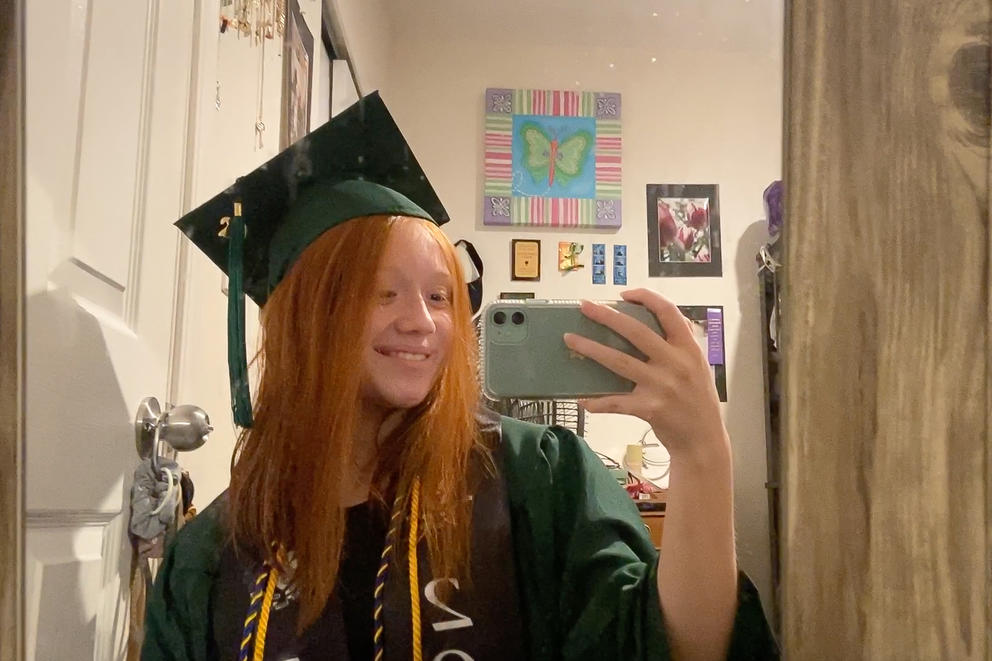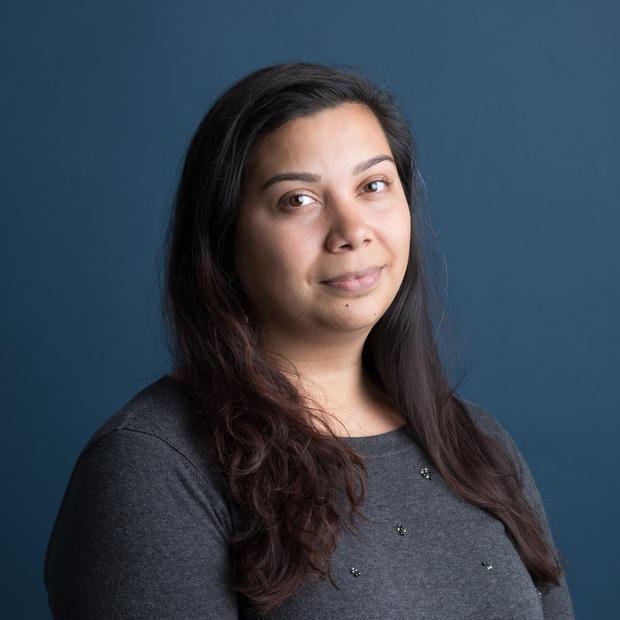From April to November, I experienced this pandemic through the eyes of Jacquelyn Jimenez Romero, the charming protagonist of our team's latest documentary, Senior Year Was Crazy. Much of the piece was filmed by Jackie herself, which upended the traditional filming process I'm used to. Wielding her iPhone, mini tripod and a compact digital camera, she deftly documented obstacles many students are quietly facing, from technology access issues to financial aid worries, all through a uniquely teenage perspective — complete with pimples, swearing and Meghan Thee Stallion lyrics.
Periodically wading through Jackie's hundreds of video submissions was one of the bright spots of an otherwise trying year. There were moments when my partner would run into the room, startled by a peal of laughter as I reviewed footage of Jackie and her siblings’ latest shenanigans. The next week, I’d wipe away tears, feeling the sting of college rejections along with her, while scribbling down notes to file away later. Fifteen years later, the emotional rollercoaster of being a teenager all came back to me. It was reality TV in the most intimate sense, and I felt immensely grateful and privileged to have been allowed along for the ride.
This experience left me reflecting on who produces journalism and what perspectives are often left out. Journalism, like many other industries, has had a reckoning in the age of Black Lives Matter protests; newsrooms are more aware than ever of how white and male our field skews. In photo and video journalism, that comes into even sharper focus. But through this filming experience, I also found myself thinking about what stories are missed when everything is produced by adults, particularly ones from a certain socioeconomic and educational background.
Watching submissions from Jackie and her siblings showed me that a child's perspective is also valuable, and that of a child on the cusp of adulthood is even more intriguing. How does the next generation view our society? What is important in their lives? What challenges are they facing? How are we failing them? In clips that stayed on the cutting room floor, I saw Jackie's 10-year-old brother, Jared, watching Seattle’s BLM protests on TV and curiously asking his sister, "Why do Black people think it's bad?" And I wondered how a child interprets a civil rights movement unfolding before his eyes. I saw Jocelyn, their 15-year-old sister, navigate school bureaucracy to get free Wi-Fi at their house so she could finally do schoolwork. "We've done so much to get internet," she fumed. "It's been like six months." Witnessing that unfold before my eyes hit me very differently than reading in a newspaper about how the digital divide is impacting low-income families. It stayed with me.
That's the benefit of first-person storytelling: It immerses you in the life of your protagonist, puts you in her shoes. It's a powerful vehicle for empathy and understanding. So rather than fight the format, we leaned into the strange circumstances and the pandemic filming restrictions. If much of Jackie's world was lived through an iPhone screen, that's what we would show. We sprinkled in coronavirus TikToks. FaceTime. Selfies. School updates on Instagram Live. The end result is a documentary that feels authentic and relatable, a microcosm of a teen’s life in 2020.
Living this past year through the eyes of Jackie and her family opened up my mind in ways that I hadn't thought possible. I would say that while the pandemic has in many ways made filmmaking more challenging, not to mention nerve-wracking at times, it has also forced us to be creative, raw, authentic and, in some ways, closer to our viewers and subjects than ever before. Something magical happens when you allow someone to tell their own story. Putting a camera in front of someone always feels extractive, but this manner feels more empowering, like you're handing over the keys and going along for the ride.
I've learned this year to be more open to adapting, to trying new things. And I've seen that at times, handing over the camera is the right choice to make. Some of the best journalism happens when you get out of the way.
This story was first published in Crosscut's Weekly newsletter. Want to hear more from journalists like Jen Dev? Sign up for the newsletter, below.



